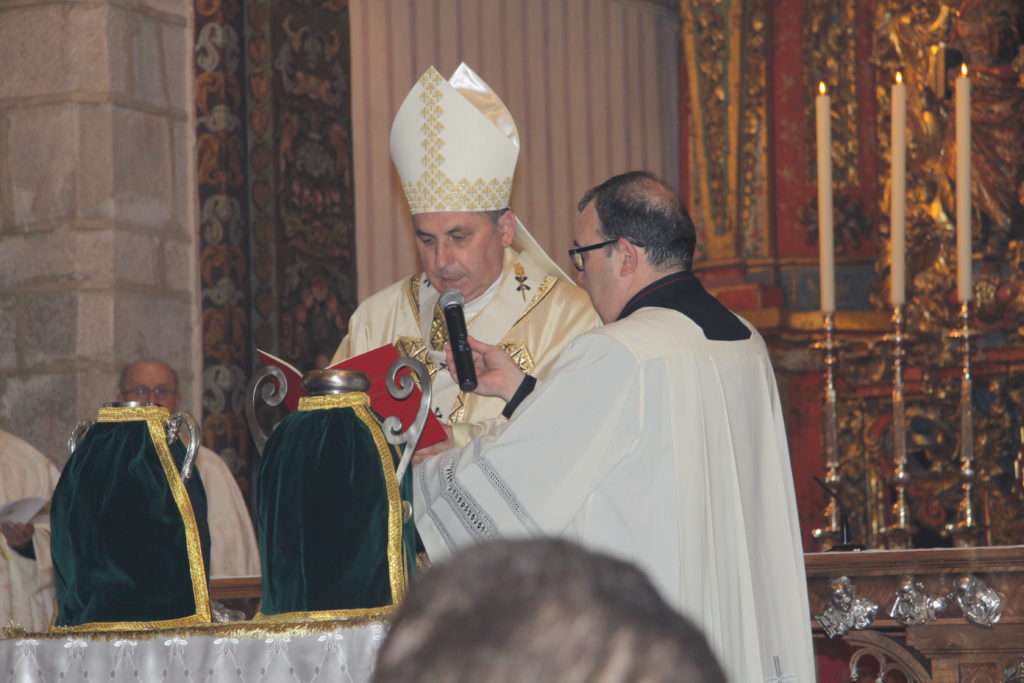The Instrumentum laboris of the Assembly of the Synod of Bishops on Amazonia (October 6-27) has put on the table the possibility of ordaining as priests married men, proven in virtue and fidelity to the Church. In this regard, we cannot fail to take into consideration - as Cardinal Alfonso M. Stickler and Christian Cochini, S.I., among others, have shown - that celibacy for holy orders in the Church of the first centuries should not be understood only in the sense of a prohibition to marry, but also in the sense of perfect continence for those ordained while already married, which was the norm.
The documents of the Councils, of the Pontiffs and of the Fathers of the first three centuries referring to celibacy-continence are, in general, a response to doubts or to questions that contested the celibacy of sacred ministers, generally in the sense of not demanding perfect continence after ordination from married people, as in canon 33 of the Council of Elvira (305?): "We thought it was a good thing to prohibit
bishops, priests and deacons absolutely forbidden to have relations with bishops, priests and deacons.
(sexual) with the woman herself". These are documents that express the will to remain faithful to the tradition of the "old" and even to the apostolic tradition, whose defense will inspire Pontiffs, Holy Fathers or Council Fathers to oppose suspicious innovations in this matter.
A light of these documents, it would be anachronistic to make the origin of celibacy of ministers depend on the celibacy of ministers from the moment when the Roman Councils or Pontiffs promulgated such norms, or to think that it Roman Councils or Pontiffs promulgated such norms, or to think that it began to be practiced when they were promulgated. promulgated. Those written testimonies of the third and fourth centuries reflect an older practice and should be understood as such. practice and should be understood as such. On the other hand, a distinction must be made in these early centuries between "celibacy" and "celibacy". between "celibacy-prohibition" of marriage after ordination and "celibacy-prohibition" of marriage after ordination. ordination and "celibacy-continence," as the obligation to observe perfect continence perfect continence for those who married before receiving holy orders.
The Church history shows the profound union between the celibacy of ministers and the language and spirit of the Gospel. ministers and the language and spirit of the Gospel. Far from being a provision of purely ecclesiastical of purely ecclesiastical origin, human and susceptible to derogation, it appears as a practice originating as a practice originating with Jesus himself and the Apostles, long before it was formally established by law. formally established by law. Jesus Christ appears as the only priest of the New Testament on whom all priests and sacred ministers must be modeled, after the example of the must be modeled on, after the example of the Apostles, the first priests of Christ, who left "all"to follow him, including the eventual wife.
When St. Paul Timothy and Titus to choose as guides of the Church to "husbands of one wife", The intention is to guarantee the suitability of the candidates for the practice of perfect continence, which will be asked of them at the laying on of hands. The exegesis of this passage is authenticated by the writings of Popes and Councils from the fourth century onwards, which understand the previous tradition more and more clearly not only as a prohibition to remarry if the ordained becomes a widower, but also as perfect continence with his wife. For this reason we find very ancient pontifical and patristic testimonies that attribute to the Apostles the introduction of obligatory celibacy.
In the light of Tradition, what, then, is the answer to the question of an eventual ordination of married men in today's Church? According to Cardinal Stickler's opinion, it would not be impossible insofar as continence was required of them, as was widely the case during the first millennium of the Latin Church. When, however, we speak today of the ordination of married men, it is generally understood that they are granted the possibility of continuing married life after ordination, ignoring the fact that such a concession was never made in ancient times when married men were ordained.
Are there circumstances today for the Latin Church to return to the practice of ordaining married men, requiring them to be continent? If it is thought that the Church has tried to reduce these ordinations because of the inconveniences they entail and to ordain only celibate men, it does not seem convenient to restore in the present circumstances a practice already obsolete. Nothing prevents the ordination of celibate or widowed elders or even married persons, if both spouses commit themselves to maintain continence. It is clear that the current mentality today would not understand such continence, but this was not the way of thinking in the primitive Christian communities, much closer in time to the preaching of Jesus and the Apostles.
Why, then, the different discipline of the Eastern Catholic Churches? Cardinal Stickler himself answers: in the Latin Church, the testimony of the Fathers and the laws of the Councils under the guidance of the Bishop of Rome constitute a more coherent whole than in the Eastern texts, which are more obscure and changeable for various reasons: influence of heresies such as Arianism; lack of sufficient reaction of the hierarchies to abuses; absence of an effective exercise of vigilance on the part of the Roman Pontiffs... For these and other reasons, the East knows a relaxation of the first discipline, which will be institutionalized in the Council of Trullo or Quininsesto of 691.
Archbishop of Mérida-Badajoz.







